CW: Medical trauma, procedures, cancer, suicidal ideation, death, and more.
“You know, only the nice people get this sort of thing. That’s a secret I’ll let you in on. Only the angels!”
Ann slides a cold wipe down my arm and breathes deep. “It’s only the nice people, the ones who take care of their health and who are good to other people. It’s always the ones who eat healthy and do everything right that get cancer.”
I ponder this for a moment but am interrupted quickly by her apologetically cheery warning: “Here comes a big pinch!”
A needle slides into the fleshy and collagen-soft part of my upper arm. A dull bee-sting heat crescendoes through the skin and I wince.
“Does it hurt?”
I shake my head. It doesn’t. Not really.
It’s the general thought of this all that truly stings. It’s the discomfort of blaring memory, the shiver of a moment being real. It’s the haunting reminder that I am sick, that I am damaged, that my cells are mutated and greedy and selfishly gobbling up my biological resources. It is my clothes folded up in a backpack next to the hospital bed, my untouched books on the bedside table, the swallowing of fear and the herculean effort to put on a facade of strength.
Those things. That is what hurts.
Not so much the PICC line as it’s being driven into my arm.
Ann sighs. “Honestly, you’ve got to be grumpier. The crabbiest people never get sick, they’re always healthy. And the slugs just get cardiac diseases!”
The line goes into my arm, trailing through vein. It reaches my shoulder and detours, bouncing up towards my neck. I can feel it wiggling.
“Ah shit, sweetie, try and hold your jaw down and let’s discourage that from happening again”.
I clamp my jaw to my neck, and Ann manuevers the line to my chest. A moment passes where I feel nothing. Suddenly, she’s patting my hand.
“You’re gonna survive the cancer. You are. You might not survive the medical trauma of it all, but the cancer you will beat.”
—
I guess if I think back, and think critically, there were signs that I might have cancer. Well, maybe not cancer. But then, the sign that something with my health could be amiss. Yet these clues were so small and routine that they would have required a Holmesian level of attention (something I do not possess when it comes to health), and a dosage of paranoia so large it would seem drug induced (something I do possess when it comes to health, but alas did not arouse in myself very quickly).
I suppose you could say the first sign was some sort of weird indigestion. At the risk of sounding unladylike (which would be a tragedy), I felt like I couldn’t quite burp the way I normally did. It was, flat, almost. Air would travel up my throat, ready to stretch its limbs in an open cavern, only to be forced flat, as though passing through a mail slot. Bizarre? Yes. Cancer? Never! I had every explanation necessary to stave away suspicion. Antibiotics from a UTI, too much drinking over the Christmas holiday, the fact that I was eating dairy again. It was too explicable, too normal.
The next sign was neck pain, and it came around a week later. I suppose I could have guessed that this was rooted in something more medically significant than the need for a massage. However, the pain too had its explanations. Every day I was in four hour classes with lights so bright and oppressive they would lend themselves quite well to surgical procedures and cafeterias alone, and a projector hung at an ever-awkward 35-degree-angle above the room. This spinal cord nightmare would be followed by an hour in traffic, during which I subjected my neck to posture that would give even the most ambitious of chiropractors pause. How run-of-the-mill, no? It was just one of those things.
But the magnum opus of my cancer was presented quite dramatically. It involved an opening act from my wisdom teeth, who – in some spirit of teenage defiance – had decided to thrust themselves from my gums and drive spitefully into the horizon of my cheeks. Pulsating with pain, they poked the soft flesh inside my mouth and ruefully inflamed my gums. Eventually, my throat started to swell (which medically speaking is considered something of a no-no) and the Sunday on-call dentist made me an appointment for oral surgery that Monday.
I think it’s important to note that my face did not swell up too much from wisdom teeth removal. I say this because I am impressed that my decision to eat only anti-inflammatory foods might have made a difference. I also say it because when a mere day later my throat was protruding with an alarmingly large slug-like lump, such a symptom felt a bit misplaced.
My ability to swallow was then a distant talent I had magically possessed in my past, the divot that usually sat in the bottom of my neck had been replaced by a baseball-sized intruder, and my same dear on-call dentist texted me at 10pm to tell me to seek medical attention– and quickly. By then, the aforementioned health paranoia had joined my side quite enthusiastically, and the main act had commenced.
The next morning, I followed instructions and went to Urgent Care. I told no one except my dog, to whom I sobbed a goodbye, letting fat tears of dread fall onto his shaggy ears.
At the Urgent Care, a tall and handsome doctor named Dr. Rumsold made me afraid when he, after seeing the lump in my throat, abandoned his cool demeanor and started to move quickly, hastily ordering blood tests and sticking a flashlight in my mouth multiple times. As I waited for results, I cried very softly, embarrassed at my wet cheeks when the nurse came in for vitals.
Within 30 minutes, I was driving to a CT imaging scan appointment hastily made for me by the doctor (something which is no small feat at 4pm in Los Angeles). I waited an hour to be seen, paid $300 out of pocket to the front desk, and finished The Year of Magical Thinking by Joan Didion in the waiting room (I can never quite escape the cruel beauty of foreshadowing). Eventually, a short woman with very tired eyes came in and called my name. I followed her down a narrow corridor until we entered a room that seemed too big for the X-ray machine it held. I felt the machine looked lonely, marooned in the middle of the looming and clinically white walls, waiting for me to lie with it. I felt I looked lonely there too.
I heard the phone call the radiologist made to Dr. Rumsold. I wasn’t supposed to, I don’t think. But I was sat too close to the door.
“I have a critical finding,” he said. His voice was low and gravely, as though his throat was holding his authority steadily and with great determination. “Your patient, Jade. She has a tumor in her chest.”
My first thought was that I couldn’t believe that the movies had it right. As the word tumor had struck my ears with a loud pop, all I could hear was crashing white noise and the deep bass of my own heart racing. Had it not been for the life-altering information, I would have laughed at how cliche it felt, how funny it was that the cinema of it all was real.
It took me a moment longer than normal to realize my phone was ringing. It was Dr. Rumsold.
“You need to go to the Emergency Room,” he said. “And not some small one either. Go where they can really take care of you. Go where they have a lot of doctors.”
I don’t remember the walk out of the building, but I remember calling my mother in San Francisco from the parking garage. I was in tears. She booked a flight. I would see her in a mere few hours.
—
Azar is salamander tall with wet and kind eyes. “Okay Jade,” he says breathlessly, almost nervously, as though he’s fearful of offending. “Are you ready for us to do your bone marrow biopsy?”
I have never dreaded words more. At some critical young age I had seen a bone marrow procedure portrayed on television and out of juvenile curiosity, googled it. The descriptions and images my eyes cascaded over instilled in me a deep fear, an eternal prayer that I would never know those feelings for myself, never be confronted with the discomfort of facing such a thing.
Fuck. Here we are.
I have always prided myself on my self-sufficiency and held my ability to comfort myself in high-regard. But not now. I want to be vulnerable and soft. I want my bed to subsume me. I want someone strong to hold me and fend off the doctors and their thick biopsy needles. I want to be protected. I want to feel safe. I’m so afraid I’m shaking.
I’ve been hospitalised for less than a week. I was initially kept for three days, released for two, and re-admitted when more lymphnodes had visibly and painfully swelled up. I had, in my time in hospital, named them Cain, Abel, and Tiny. They always said a Catholic school education would stay with me.
“I’m ready,” I say to Azar, my eyes immediately watering. He looks at me kindly but says nothing except:
“Please flip over onto your stomach”.
I do it. I feel my animal brain raging against my skull. We cannot be about to let these two men pull our pants down and carve a hole in our pelvis.
I try to steady my thoughts. As Azar begins to work, it feels like a cellphone is vibrating in my back. It feels like a coat hanger is being dragged through my bone.
Lose to this, I tell myself. Lose so that you might be able to live.
—
When I first found out I had cancer, I combed back through every memory I had in my life that was related to it. I was picking apart my lived literature, dog-earring moments that could be classed as foreshadowing, starring what could be symbolism.
When I was young, I mixed up the words Leukaemia and Waikiki. I don’t know how. I don’t know when I had even learned either word. But I spun around in the pool and said loudly, “It’s like we’re in Leukaemia!”.
My older brother looked at me quizzically. “Do you even know what that is?” he said.
Maybe I called for my life to be marked. Sang a chant to the heavens inadvertently all because Hawaiian islands and blood diseases got swapped around in the toybox skull of an eight year old.
In university, my friends Desiree, Caitlin, and I debated a statistic that we had seen. It said that one in every three people would get cancer. I sat on the floor, my knees folded to my chest.
“That means that it’s going to get one of us”.
Maybe some cosmic cloth unraveled there in the East Coast of Scotland. It unfurled from the heavens, extricated from the circular dust belts of time, and landed in my 21 year old hands. Maybe somehow I knew the cancer was in my blood.
—
February 15th. A Journal Excerpt.
‘There will come a time, where I remember this moment. But I will not remember not knowing what happened next. I will know how things progressed. I will have the understanding of each event.
Right now, I have to be in the discomfort of being. I do not have the privilege of remembering. Not yet.
I have to wait patiently and see how things go. And if things go bad, I will have to wait some more. Until things go good. Then I can just live and remember and live some more.’
—
After one month of chemo, I was what could be generously described as a sorry state. The high-dose steroids I had been on made my face unrecognizably swollen and kept me awake all night. My muscles and vocal cords had atrophied, stripping me of my ability to move without the assistance of a wheelchair and the privilege of swallowing water without choking. My voice was gone, a strangled husk of its former warm self. I had double pneumonia and severe digestive issues. I couldn’t feel my fingers or toes. I couldn’t lie still without my bones aching. I couldn’t stop shaking. I couldn’t sit up straight for more than a minute. I couldn’t eat without feeling the sores in my mouth, without being worried I wouldn’t keep the food down. I couldn’t hold a conversation. I couldn’t write. I couldn’t read. I could barely watch television. Everything that made me myself had been ripped away in a rapid and tragic siege on my body and mind. I had never felt more violated, more unlovable, more desolate, more dejected, more depressed.
Yet at once, I didn’t care.
I don’t think I’ve ever before wanted to die. Not in the way that I did then, at least. I’ve felt gutwrenchingly sad before. Felt hopeless or helpless. I’ve been ungrateful and whining and self-indulgent and impatient, and therefore told myself that life was a useless consequence of birth, and that I (who felt I was suffering so deeply in these prior moments), was struggling with.
But never before had I felt such a deep sense of ambivalence. It was as though I didn’t want to die, I just wouldn’t have minded if I did. I didn’t want to die. But I didn’t want to live anymore.
For a long time, I didn’t cry. I couldn’t. I didn’t have the expectation of something better, the feeling that something was that should not be. I couldn’t access the part of me that hoped for something new. I no longer ached for someone to protect me. I didn’t need to feel safe. I didn’t need to feel anything. All that I felt I could realistically achieve was pain, or ideally, less pain.
I moved back to San Francisco. I tried to learn to walk again, to get my appetite back, to gain weight, to speak. For days I felt listless and empty. Everything felt unachieveable.
One day, as I was taking my daily shuffle through the back garden, gloomily drenched in gorgeous sun, I was taken aback by how difficult a simple walk was. Each step was impossibly grueling. My legs were shaking and threatening to give out, and the effort of it all started to overwhelm me. I stopped at a little brick wall to catch my breath. Who was I now? I was someone who couldn’t go for a simple walk. In one mere month I had gone from running for hours over hills, hiking temperamental terrain, lifting weights heavier than me, to suddenly being flattened by a five minute exertion. My hands clasped my bald head, and through my chest I felt a sorrow that seared. It rushed up my neck and through my arms. My breath was rapid, and I was dizzied by my sadness, by my fear that I had lost too much. Thick tears sprung from my eyes and they didn’t stop. I cried harder than I have in any living memory of mine.
In time, the sobs subsided to the backing track of various birdsongs. I listened to them, to the rustle of tree leaves, to the breath of my dog. I gazed up at the sky, my red and puffy eyes squinting in the face of its brightness.
It was then I realized that I was more than someone who wanted to live.
I am someone who will do anything to stay alive.
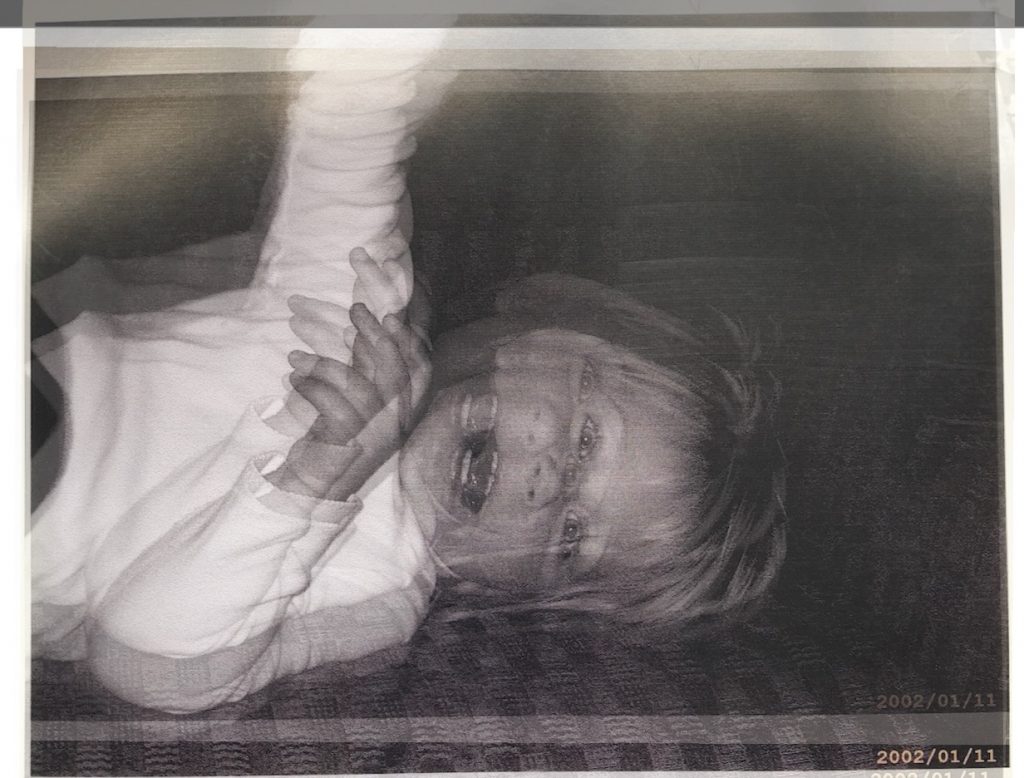


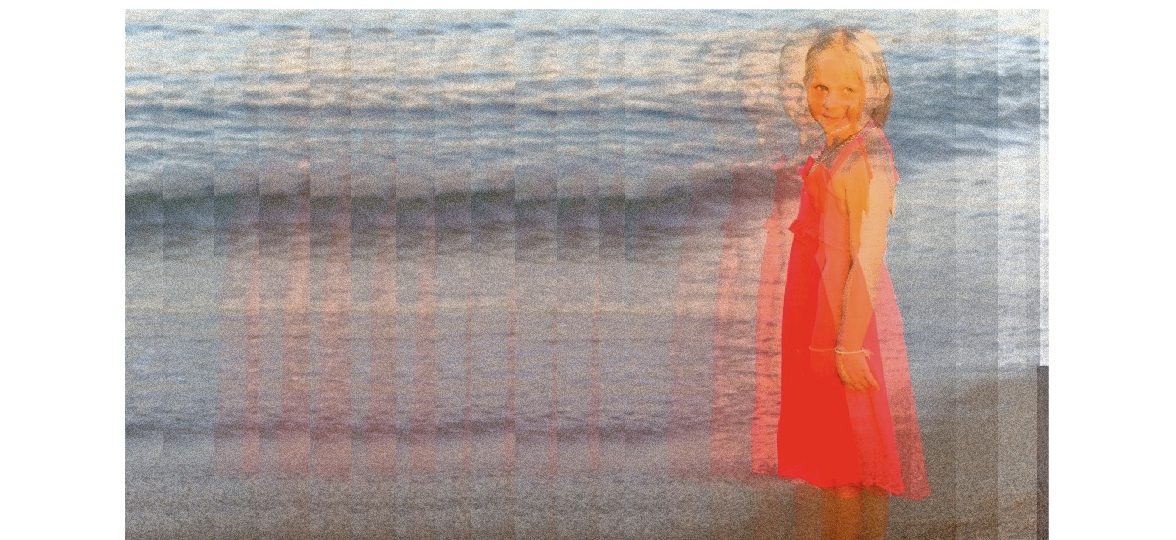
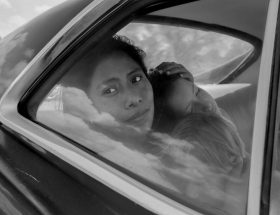
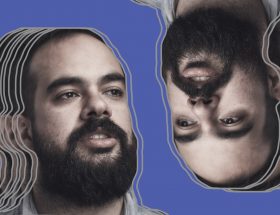
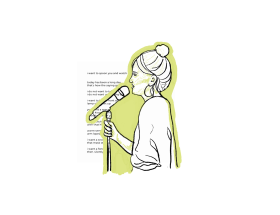
There is an overwhelming, deep sadness, but at the same time, enormous pride in how you have articulated the cruelty of this vicious and relentlessly cruel disease. As someone who adores you and has viewed you as a true warrior woman, part of me is so furious that cancer chose you to ravage, but then I must remind myself that your grit and determination will get you through. Even in the throws of cancer, you have created this brilliantly constructed article that helps us to understand your unchosen journey. I am humbled and only wish that I could do more. Just don’t ever forget that you are an enormous gift to the world, and we need you to beat this monster. With so much love.
Jade! I forgot what an amazing, soulful writer you are… I could feel your fear and sadness, but also your hope! You are a strong, badass woman and you got this❤️